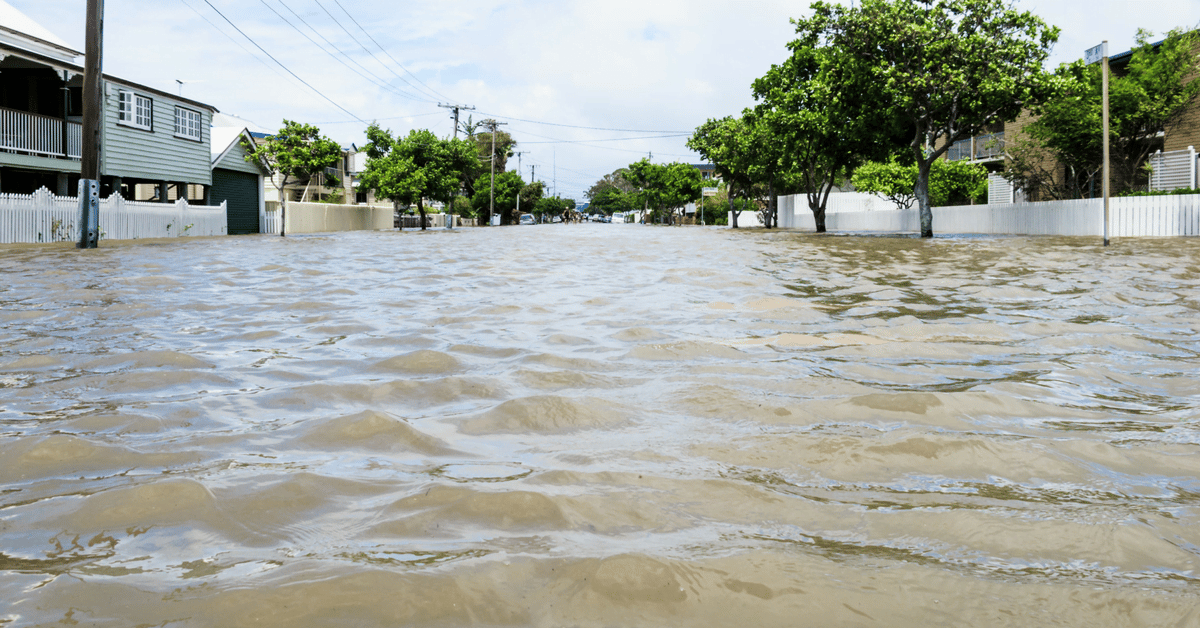A Houston man’s Hurricane Harvey electrocution when attempting to save his sister’s cat shows how electrical dangers go unseen in floodwaters

There are plenty of heartbreaking stories in the aftermath of Hurricane Harvey’s devastation that was left across Houston and South Texas. One of them is 25-year-old Andrew Pasek’s Hurricane Harvey electrocution, which happened when he trudged across floodwaters to save his sister’s cat.
I’ve come across tragedies like Pasek’s Hurricane Harvey electrocution throughout my 35-plus years of being an attorney who focuses his legal practice on electrocution and shock injury-related personal injury lawsuits. Usually these cases come from a downed power line or aging infrastructure, and it’s never easy to put into words the magnitude of how I feel with a surviving family’s loss. That’s why I started this electrocution safety blog, to try to impart as much of my own knowledge and experience via a legal and consumer electrical safety blog. I hope this blog and the things I have seen in the course of my own legal career can serve to prevent injuries and deaths due to electrical failure.
There is a lesson here after Hurricane Harvey about the dangers of electrocution after extreme storms. Pasek’s mother, JoDell, said in regard to her son’s tragic death that it might serve as a warning to others about a storm or a flood’s unseen dangers.
She told People magazine:
“I love my son. And it’s so tragic that that happened. I decided that night [when he died] that we want to make it count. If he was gonna have to die, I didn’t want anybody else to die doing the same thing.”
If your community is ever caught in a flood, take these important electrical safety precautions in order to avoid a tragic accident like Andrew Pasek’s Hurricane Harvey electrocution.
Know that standing water poses risk of electrocution
Standing water can be electrically charged if a fallen power line is submerged in it or if a power line is buried underground beneath the water but is still live.
In Pasek’s case, the power in his sister’s neighborhood wasn’t shut off. His ankle touched a live wire in the water, and because he had plates and metal screws in his ankle from a car accident six years prior, the current was drawn straight to the imbedded metal.
As he lost his balance and began stumbling into the water, Pasek put his hand on a nearby electrical light pole. Even though public lighting is often powered by only 277 volts, that’s plenty enough to kill even an adult. In fact, household current of 120v/240v is sufficient to be lethal. And with the current racing through him, Pasek couldn’t pull away from the pole.
Further, rescue workers couldn’t get to Pasek for at least an hour afterward because of the live current in the water.
Just as storms and constantly moving lake or river water can quickly create faulty wiring on boat docks — leading to electric shock drownings — the same thing can happen in flood situations like Hurricane Harvey. Electrical equipment should be avoided if the ground is wet.
Stay away from a flood-damaged basement
If your basement is filling with water due to a flood, do nothing until the utility company, fire department or an electrician has turned off the home’s power. The electrical meter must be completely disconnected from the power grid; a flooded basement still poses an electrocution hazard if someone is running a generator nearby and “back-feeding” electricity into a storm-damaged grid.
Watch out for any and all downed power lines
Massive weather-related events like heavy wind storms and flooding present substantial yet easily underappreciated threats including:
- Downed power lines: They seem to be everywhere and anywhere, and are energized and capable of electrocuting people and/or causing electrical shock injuries.
- Everyday objects that have been “energized”: Trees, cars, fences and basketball hoops can pose electrocution risks if they come into contact with downed power lines.
Fallen power lines are very dangerous and can be especially hard to see at night and when hidden in trees or other flood debris. Always assume fallen power lines are live. Keep away from them and warn others to do the same. Report fallen power lines and trees or branches that are in contact with power lines to your utility company.
Take a few moments to ‘think a little more clearly’
JoDell Pasek said she remembers her son — an Eagle Scout and an animal lover — as someone who “just always want[ed] to help people.” But she offered some sound advice about assessing the situation when potential hazards such as exposure to a live current could be lurking:
“You have to think a little more clearly when you’re trying to rescue people or rescue something or help because you don’t know what’s in the water.”
My heart is with Andrew’s family and everyone else who either lost a loved one as a result of a Hurricane Harvey electrocution or is still missing family in the storm’s aftermath.
